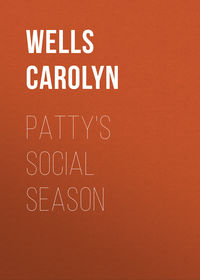
Mrs. Bates gave a little cry, and shuddered, but Lockwood went unmovably on.
“There were other books about, some open, some closed, but Martial was nearest his hand – quite as if he were reading up to the last moment.”
“When the murderer came!” Mrs. Bates breathed softly, her eyes wide with horror.
“It couldn’t have been murder,” Lockwood said, in a positive way, “you see, Mrs. Bates, it just couldn’t have been. That Morton detective is trying to trump up a way the assassin could have entered that locked room – but he can’t find any way. I know he can’t. So it must have been suicide. Much as we dislike to admit it, it is the only possible theory.”
“But they say there was robbery,” Mrs. Peyton put in. “The ruby pin is gone and the money from the drawer.”
“But, perhaps,” Gordon said, “they were taken by a robber who did not also murder his victim. Nogi, now – ”
“Of course!” cried Helen Peyton, quickly; “I see it! I never could abide Nogi, with his stealthy ways. He stole the things, and then he ran away, and later, Doctor Waring killed himself!”
“Because of the robbery!” exclaimed Emily Bates.
“Oh, no!” Lockwood returned. “Certainly not for that. Indeed, the motive is the greatest mystery of all. We could perhaps imagine a motive for murder – whether it was robbery, or some brute of ‘the other faction’ or some old enemy of whom we know nothing. But for suicide, though I am sure it was that, I can think of no motive whatever.”
“Nor I,” said Mrs. Bates. “I knew him better than any of you, and I know – I know for a certainty, that he was a happy man. That he looked forward eagerly to his marriage with me, that he was happy in the thought of his Presidency – that he hadn’t a real trouble in the world.”
“The other faction,” began Mrs. Peyton.
“No,” said Mrs. Bates, firmly. “He knew he was doing his duty, upholding the principles and tradition of his College, and the other faction did not worry him. He was too big-minded, too broad-visioned to allow that to trouble him.”
“I think you’re quite right, Mrs. Bates,” Lockwood agreed; “but granting it was suicide, what do you think was the cause?”
“That’s just it,” she declared; “I don’t think it was suicide, I know it couldn’t have been. He was too happy, too good, too fine, to do such a thing, even if he had had a reason. And then, what did he do it with?”
“Morton imagines a secret entrance of some sort,” said Lockwood. “If there is one, the robber could have come in afterward, and could have carried off the weapon – ”
“Hush, Gordon,” said Mrs. Bates, sternly. “That’s too absurd! If it had been suicide – which it wasn’t – why under heaven would a burglar coming in later, take away the weapon?”
“To save himself,” said Lockwood, shortly. “So he wouldn’t be suspected of the greater crime.”
“Nonsense!” said Mrs. Peyton, irately; “I never heard such rubbish! And, in the first place, there’s no secret entrance to the study. I haven’t swept and dusted and vacuum-cleaned that place all these years without knowing that! Yes, and had the room redecorated and refloored, and – Oh, I know every inch of it! There’s no possible chance of a secret entrance. Who built it and when and why? Not Doctor Waring. His life’s always been an open book. Never has he had any secret errands, any callers whom I didn’t know, any matters on which he was silent or uncommunicative. Until his engagement to Mrs. Bates, he hadn’t a ripple in his quiet life, and that he told me about as soon as it occurred.”
Mrs. Peyton looked squarely at Doctor Waring’s fiancee, as if to imply a complete knowledge of the courtship, as well as an intimate knowledge of the Doctor’s life.
“That’s true,” Lockwood said. “He was a man without secrets. He was always willing I should open his mail, and there was never a letter that I did not know about.”
Yet even as he spoke, the man remembered the crumpled paper he had taken from the waste basket, and he felt it in his pocket, though he made no sign.
“Oh, people, is my aunt here?”
It was Pinky Payne, who, all excitement, came running in.
“I’ve just heard, and I want to see Aunt Emily.”
“Here I am, dear. Come here, my boy,” and she drew him down beside her on the sofa.
“What do they say, Pinky? What’s the talk in town?” Lockwood asked.
“Oh, the place is in a turmoil. There are the wildest reports. Some say it’s a – a – that he killed himself, you know, and some say – he didn’t. Which was it?”
The boy’s lip quivered as he looked about at the silent people.
“Tell him, Gordon,” begged Mrs. Bates, and Lockwood told the principal details of the mystery.
“Never a suicide! never!” Pinckney Payne declared. “I know Doc Waring too well for that. Suicide means a coward – and he was never that! No, Aunt Emily, it was murder. Oh, how terrible,” and the boy almost lost control of himself. “You were at the bottom of it, Auntie. I’m sure it was either one of those men you refused when you took up with Doc Waring.”
“Why, Pinckney! How dreadful of you! Don’t say such a thing!”
“But I know it. If you’d heard Jim Haskell and Philip Leonard talk – I felt sure they meant to kill Doctor Waring.”
“Pinky, I forbid you – ”
“But it’s true, Auntie. And if it’s true, you want them shown up, don’t you, whichever one it was?”
“Hush, Pinky – hush!”
“Yes, shut up, Pink,” Lockwood spoke sternly. “What you suggest is highly improbable, but even if there’s suspicion of such a thing, don’t babble about it. That’s the detective’s work.”
“Yes – and who’s your detective? Old blind-as-a-bat Morton, I’ll bet, who can’t see a hole through a ladder! I’ll show him now – ”
“Pinky, I beg of you, hush,” said his Aunt, losing her self-control.
“There, Auntie, dear, don’t cry. I didn’t mean to worry you, but something must be done – ”
“Something will be done, Pinky,” Lockwood assured him. “But I tell you right now, if you try to stick your inexperienced finger in this pie, you’ll make trouble for us all – from your aunt down. Now, behave yourself. Try to be a man, not a foolish boy.”
“That’s what I’m doing! And I don’t propose to lie down on the job, either. I tell you, Gordon. I know a lot about detective work – ”
“Cut it out, Pink,” said Helen, and her words seemed to have an effect on the irrepressible youth. “To read detective stories is one thing – to solve a real, live mystery is quite another.”
“That’s right, Helen,” and Lockwood nodded approval. “Many a person thinks he has a bit of detective instinct, when all he has is curiosity and imagination.”
Helen, pleased at this appreciation went on to lay down the law for Pinckney Payne.
She was interrupted by the entrance of Morton who wanted to learn more of the departed Japanese, Nogi.
“What other servants are there?” he asked Mrs. Peyton.
“Only the two Japanese,” she replied. “They do all the cooking and serving at table; all the cleaning of the house; and the rest, my daughter and myself attend to.”
“There is a chauffeur?”
“Yes, but the garage is a few blocks away, and the chauffeur lives at home.”
“You had Nogi but a short time?”
“Only a few days.”
“He came well recommended?”
“He had very fine written recommendations, but from people I did not know, and too far away to inquire of. I took him on trial.”
“He seemed honest and faithful?”
“He seemed so – but he was silent and moody – a man one could scarcely understand.”
“Can you imagine his killing his master – granting the opportunity?”
Mrs. Peyton considered. “I can imagine it,” she said, “but I shouldn’t like to say I would suspect him of it. He was soft-footed, and went about with a sort of stealthy manner, but I’m not prepared to say he was wrong in any way.”
“Call in Ito, the other one.”
Ito came, and stood stolidly by. His impassive demeanor was not unlike that of Gordon Lockwood. Waring had sometimes remarked this in a chaffing way to his secretary.
“You knew this Nogi?” asked Morton.
“Only since he came here,” answered the butler, in perfect English.
“You liked him?”
“Neither yes nor no. He knew little of his duties, but he was willing to learn. He was respectful to me, and friendly enough. I had no reason to dislike him.”
Morton didn’t seem to get anywhere with this man.
“Well, what do you think of his character?” he said. “Would you say he was capable of killing his employer?”
“All men are capable of crime,” said the Jap, in a low, even voice, “but he could not kill Doctor Waring and go away leaving the study locked on the inside.”
“Why did he go away, then?”
“That I do not know. It may be he tired of the place here.”
“But there was money due him.”
“Yes; that makes it hard to understand.”
Morton had an uncomfortable feeling that the Japanese was scornful of him, and, worse still, that the other listeners were also.
“You may go,” he told Ito, and then, turning to Lockwood, he said, a little belligerently, “Who is in charge here? To whom do I make my report?”
The question was like a bombshell. All were silent, until Mrs. Bates said, “I suppose I am what might be called in charge. You may report to me.”
“To you, ma’am?” Morton was, clearly, surprised.
“Yes; as Doctor Waring’s affianced wife, and as his heir, I feel I am in authority. And also, I wish all reports made to me, as I am the one most deeply interested in learning the identity of the murderer.”
“If he was murdered,” supplemented Mrs. Bates.
And Mrs. Peyton broke in, “You needn’t think, Mr. Morton, that there’s such a thing as a secret entrance or secret passage in this house, for I know there is not.”
“Yet there are other theories, other possibilities,” the detective said, his air a little less important than it had been. “Suppose, now, that Nogi had robbed and murdered his master, when he carried in the water tray. Just suppose that, and suppose that, with his Japanese cunning he had devised a way to lock the door behind him – or, say, he had gone out by the glass door, and had locked that behind him.”
“How?” cried Pinckney, his eyes wide with excitement.
“Say he had previously removed a pane of glass – they are not large panes. Say, he reached through, locked the door inside – the French window, I mean – and then had put in the pane, reputtied it, and gone away.”
“Gee!” cried the boy. “That could be!”
“Of course it could. And there are other ways it might have been accomplished. Now, we don’t say that did happen, but what I want to know is, who is at the head of this investigation?”
“I can’t feel that Mrs. Bates is,” Mrs. Peyton said, a little sullenly. “She was not married yet, and therefore, as resident housekeeper, I feel rather in authority myself.”
“But you say you are the heir, Mrs. Bates?” the detective inquired.
“Perhaps I ought not to have told that,” Emily Bates spoke regretfully. “But Doctor Waring’s lawyer will tell you, it is true I am the principal heir. It is so designated in his will, which you will find in a secret drawer in his desk.”
“You know where this drawer is?”
“I do.”
“Later on, I will ask you to show us. If you are the heir, there is no further question of your authority here.”
And Detective Morton left the room.
CHAPTER VIII
WHERE IS NOGI?
Twenty-four hours later Cray, the District Prosecuting Attorney, stood in the Waring study.
The body of the master had been removed, and to Cray’s regret he had not seen it before the embalmer’s work had removed the red ring on the forehead.
“It was a sign,” he said to Morton, who was moodily listening. “A sign like that, left by the murderer, always means revenge.”
“You agree to murder, then?” Morton spoke eagerly, glad to have his theory corroborated.
“What else? Look here, Morton; it’s got to be either murder or suicide, hasn’t it? Yes? Well, then, to which of the two do the greater number of clues point? Sum up. For suicide we have only the locked room argument. I admit I don’t know how any one could get in or out of this study, but, as I say, that’s the only sign of suicide. Now, for murder we have the absence of the weapon, the robbery of the money and the ruby, and sign of a circle on the dead man’s forehead. Wish I’d seen that. It wasn’t burnt on, for it disappeared after the embalmers took care of it.”
“Oh, no, it wasn’t as deep as a burn. More like an impression left by a ring of cold metal or the edge of a glass tumbler.”
“Very strange, and decidedly an important clue. For, here’s the queer part. The doctors declare the mark must have been made while the man was alive – now, how can that be explained?”
“Give it up. It’s too much for me. But it was too small a circle to have been made by the tumbler on the water tray. I measured it.”
“I know; that’s why I think it was a sign of revenge. Suppose the motive was revenge and the reason for revenge had something to do with a quarrel in which a small glass or cup figured. That’s the idea, though, of course, it needn’t have been a glass or cup at all, but something with a ring-like edge. Thus, there was a reason for the sign on the dead man’s face.”
“I see; though I never could have doped it out like that.”
“Oh, I don’t say it’s exactly what happened, but there must have been something of the sort, for what other hypothesis fits the case at all? We can’t imagine Doctor Waring branding his own forehead, and then killing himself, can we?”
“No; and if he had, where’s the branding iron – to call it that – and where’s the dagger?”
“That’s right. Now, I propose to treat the matter as a murder case, and look for the criminal first, and then find out how he entered the locked room afterward.”
“Pooh! those locked rooms – ”
“You’re ’way off, Morton, when you sneer at a ‘locked room.’”
“It was locked – I mean impenetrably locked. There is no secret passage – of that I’m sure. Your ingenious idea of removing and replacing a whole pane of glass was clever, I grant, but we’ve seen that not a pane has been lately reputtied. They’re all framed in old, dried, hard, and even painted putty.”
“I know it. But some other such way might have been devised.”
“Can’t think of any. We’ve examined all the window sashes and door frame – oh, well, so far as I can see the room was absolutely unenterable. But, notwithstanding, I’m going to work on a murder basis. Because inexplicable as that seems, there are even more insurmountable difficulties in the way of the suicide theory. Now, I suppose you’ve had the finger print expert in?”
“No – I haven’t – not yet.”
“Good Lord! What kind of a detective are you? Well, get him, and put him to work. What about footprints?”
“Inside the room?”
“Or outside, either. But inside, I suppose has been trampled by a score of people!”
“You can’t get footprints on a thick rug,” the discomfited Morton grumbled.
“Sometimes you can. And a polished floor will often show marks. What have you done, anyway?”
“There was enough to do, Mr. Cray,” Morton flared back at him. “I have been busy every minute since I began, except for a few hours sleep.”
“Over twenty-four hours since the alarm was given. You’ve put in at least twelve, then. What have you done?”
“A lot. I’ve found out, to my own satisfaction, that – if it is a murder – Gordon Lockwood knows all about it.”
“You suspect him?”
“Either of the deed, or of guilty knowledge.”
“And his motive?”
“Money. That young man is over head and ears in debt.”
“To whom?”
“To shops – jewelers, florists, restaurants. All the debts a gay young blade would incur.”
“You amaze me, Morton. Lockwood isn’t that sort.”
“Isn’t he? You’re deceived, like every one else, by that icy calm of his. He stares haughtily, and appears above and beyond ordinary mortals, but he’s deep. That’s what he is, deep.”
“Well, how did he do it?”
“With his penholder. A smooth, sharp silver penholder. And he took the money and the ruby.”
“And how did he leave the room?”
“Don’t ask me that! That’s his secret. But, I’ve a notion he was in cahoots with that new Jap, the one that vamoosed. I theorize,” Morton waxed important as he noted the Prosecutor’s attention, “that the Jap had some grudge against Waring, and it was he who branded his forehead, and who contrived a way to leave the room locked behind him. Why, I read a story the other day, where a key was turned from the other side of a door by means of a slender steel bar through the key handle, and a string from the bar, leading down and under the door. Once outside, the murderer pulled the string, the bar turned the key in the lock, the bar fell to the floor and he dragged it under the door by means of the string.”
“Ingenious! but it implies a door raised from the floor.”
“I know. And this one isn’t. But it all goes to prove that there can be some way – some diabolically clever way to do the trick. And the Japanese are diabolically clever. And so is Lockwood. And if the two worked together they could accomplish wonders. Then Lockwood with his wooden face, could disarm suspicion. The Jap, let us say, couldn’t, so Lockwood packed him off.”
“Interesting – but all theory.”
“To be proved or disproved, then.”
“Yes, but meantime, you are losing time on more practical investigation. Let’s look outside for footprints – I mean for any one coming or going from this side entrance.”
“The French window? Nobody comes or goes that way in this weather; the path isn’t even shoveled. That’s used mostly in summer time.”
“Nevertheless,” Cray opened the window door, “somebody has been here.”
Morton looked out and stared hard. How had he come to neglect a matter of such importance. There were two plainly visible lines of footprints in the snow, one quite obviously coming toward the house and one going away from it.
“There’s your murderer,” said Cray, quietly.
“Oh, no,” but Morton wriggled uneasily. “It couldn’t be. No murderer is going to walk through crusted snow, to and from the scene of his crime, leaving definite footprints like those!”
“That’s no argument. He might have come here with no intent of crime, and afterward, might have been so beside himself he couldn’t plan safely.”
“Oh, well, get what you can from them,” said Morton, pettishly. “I suppose you deduce a tall man, with blue eyes and two teeth missing.”
“Don’t be cheap, Morton. And, on the contrary, I deduce a small man. They are small footprints, and close together. The Japanese are small men, Morton.”
“Well, these prints are more than twenty-four hours old, and they’re not clear enough to incriminate anybody.”
“They haven’t changed an iota from the moment they were made. This cold snap has kept everything frozen solid. Look at the frost still on the panes, the icicles still on the window sashes, the ice coating still on all the trees and branches. In fact it has grown steadily colder since night before last, and until it begins to thaw we have these footprints as intact evidence. I will have them photographed.”
“They are small,” Morton agreed after further examination. “And as you say, too close together for an ordinary sized man. It looks like the Jap.”
“Beginning to wake up, are you? You’ve sure been asleep at the switch, Morton.”
“Nothing of the sort, Mr. Cray. But I ought to have help. I’ve had all I could tackle, making the necessary first inquiries, and getting the facts straightened out.”
“That business could have waited better than these other things. Now, there’s Crimmins, the lawyer arriving. Let’s interview him. But not in the study. Keep that clear.”
They met Crimmins in the hall, and took him to the living room.
The matter of the will was immediately taken up, and Mrs. Bates was asked to tell which desk drawer it was in.
Accompanied by the lawyer and the secretary, Mrs. Bates indicated the drawer, and Lockwood opened it with his key.
There were a few papers in it but no will.
Nor could further search disclose any such document.
“Who took it?” said Mrs. Bates, blankly.
But no one could answer her. The others came thronging in, Cray’s urgent requests to keep out of the study being entirely ignored.
“I knew it,” declared Mrs. Peyton, triumphantly. “Now, I guess you won’t be so cocky, Emily Bates – you or your ‘authority!’”
Mrs. Bates looked at her. “I am the heir,” she said haughtily. “I assert that – but I cannot prove it until the will is found. It isn’t in your possession, Mr. Crimmins?”
“No; Doctor Waring preferred to keep it himself. I cannot understand its disappearance.”
“A lot of paper has been burned in this fireplace,” said Helen Peyton who was poking the ashes around.
Morton hastened to look, for it seemed to him as if everybody was stealing his thunder.
“Nothing that can be identified,” he said, carelessly.
“No?” demurred Cray. “At any rate, it looks as if some legal papers were destroyed. This bit of ash is quite evidently the remainder of several sheets folded together.”
But no definite knowledge could be gained outside the fact that much paper had been burned there. As no fire had been made since the discovery of the tragedy, it stood to reason the papers were burned by Doctor Waring himself or by his midnight intruder, if there were such a one.
“Well,” Cray demanded of the lawyer, “if no will can be found, then who inherits the property of Doctor Waring? And is it considerable?”
“Yes; Doctor Waring had quite a fortune,” Crimmins told them. “As to an heir, he has a distant cousin – a second cousin, who, I suppose would be the legal inheritor, in the absence of any will. But, I know he made a will in Mrs. Bates’ favor, and it included a few minor legacies to the members of this household and some neighbors.”
“I know it,” Mrs. Bates said. “I’m perfectly familiar with all the bequests. But where is the will? It must be found! It can’t have been burnt!”
“We’ve no right to assume that those paper ashes are the will, but I confess I fear it,” Crimmins announced, his face drawn with anxiety. “I should be deeply sorry, if it is so, for the cousin I speak of is a ne’er do well young man, and not at all a favorite of his late relative. His name is Maurice Trask and he lives in St. Louis. I suppose he must be notified in any case.”
“Yes,” said Cray, “that must be done. But, please, all go out of this room, for the finger print experts and the photographers are coming soon, and every moment you people stay here, you help to cloud or destroy possible clues.”
Impressed by his sternness, they filed out and gathered in the living-room.
There they found a neighbor, Saltonstall Adams, awaiting them.
“I came over,” he said, with scant preliminary greetings, “because I have something to tell. You in charge, Mr. Cray?”
“Yes, Salt, what do you know?”
“This. I was awake late, night before last – the night Doc Waring died, and I was looking out my window, and it was pretty light, with the snow and the moonlight and all, and I saw a man – a small man, creeping along sly like. And I watched him, he went along past my house down toward the railroad tracks. He had a bag with him, and a bundle beside. I wouldn’t have noticed him probably, but he skulked along so and seemed so fearful that somebody’d see him.”
“Nogi?” said Gordon Lockwood, calmly, looking at the speaker.
“Don’t say it was, and don’t say it wasn’t. But I went down to the station and the station master told me that that Jap of Waring’s went off on the milk train.”
“He did!” cried Morton, “what time does that train go through?”
“’Bout half past four. The fellow passed my house ’long about half past twelve, I should say – though I didn’t look, and he must have waited around the station all that time till the milk train came along.”
“Is the station master sure it was Nogi?” asked Mrs. Peyton, greatly excited.
“Said he was, and there’s mighty few Japs in Corinth, all told.”
“Of course it was Nogi,” said Lockwood, and Morton snapped him up with, “Why are you so sure?”
Lockwood treated the detective to one of his most disconcerting stares, and said,
“You, a detective, and ask such a simple question! Why, since there are but a very few Japanese in this town, and since one of them left on that milk train, and since all the rest are accounted for, and only Nogi is missing – it doesn’t seem to me to require superhuman intelligence to infer that it was Nogi who took his departure.”









